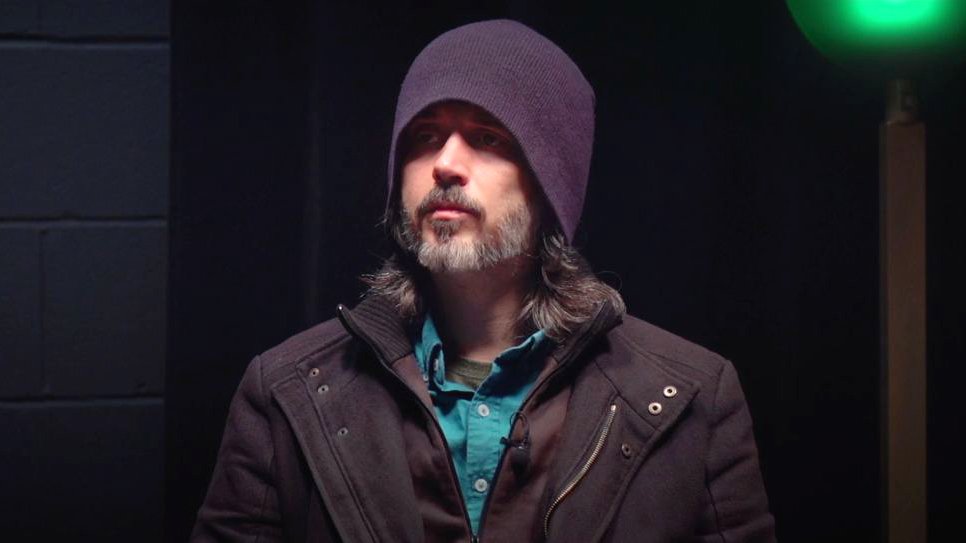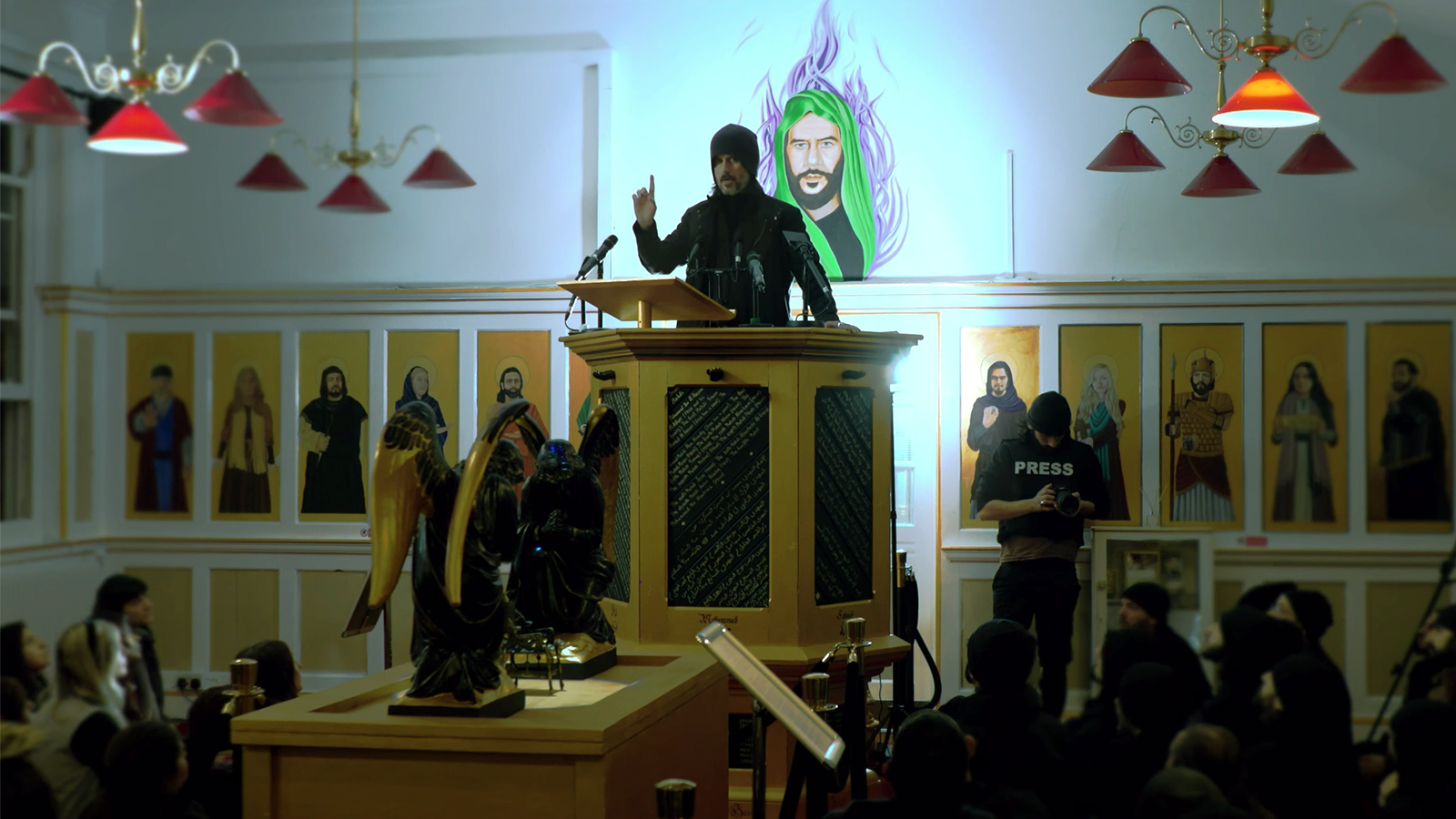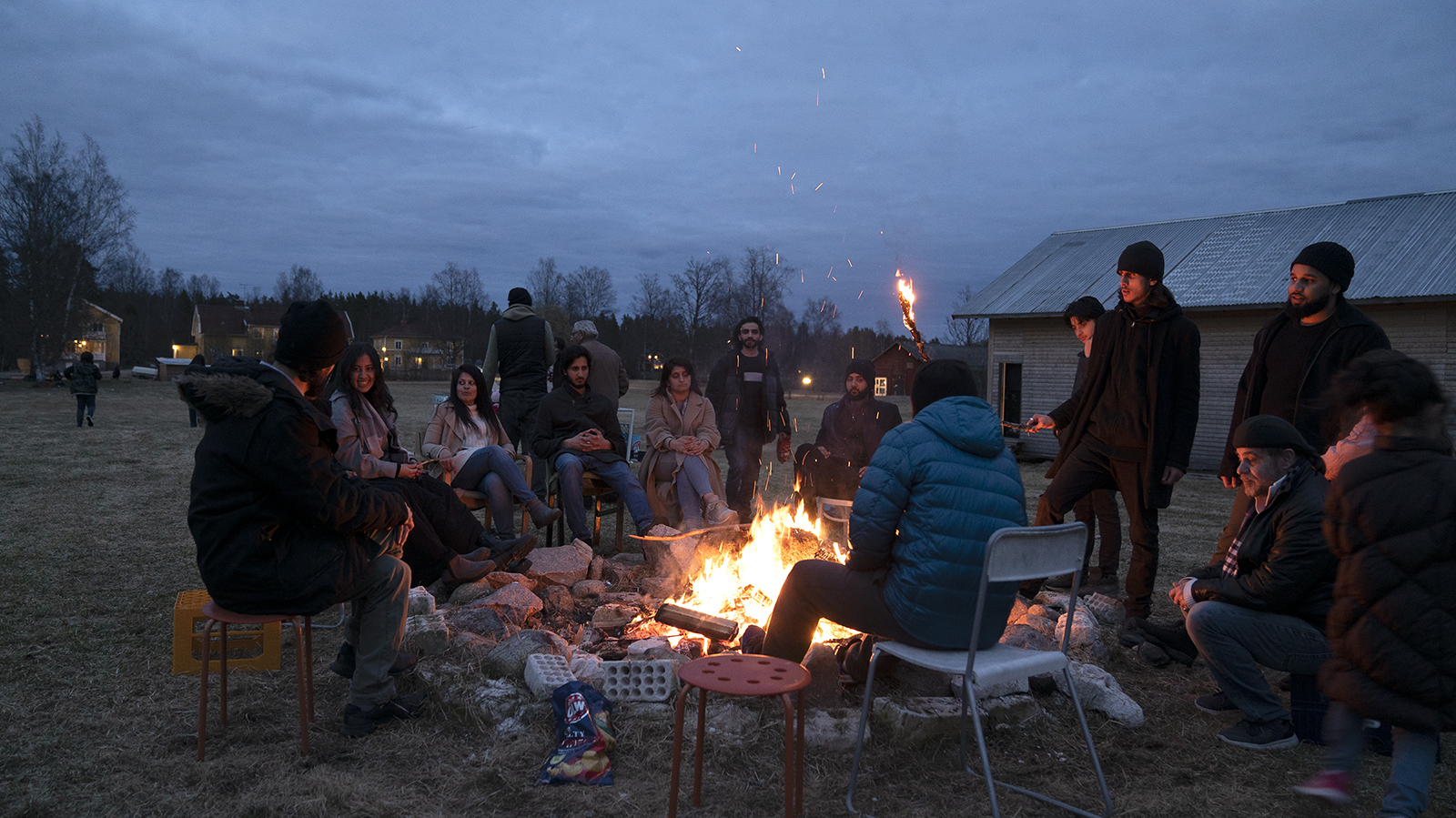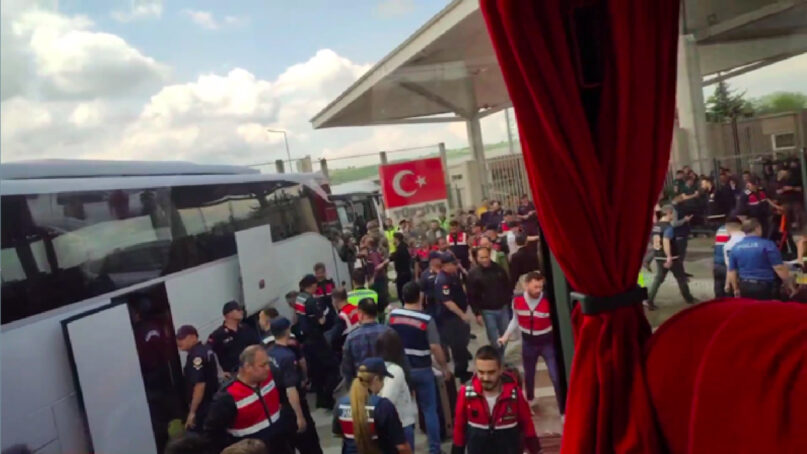(RNS) — On May 24, 104 members of a minority religious group arrived at the Turkish-Bulgarian border expecting to find asylum. Instead, they were met with clubs and gunfire.
“They started getting attacked by the Turkish border guards. They started beating them with batons,” said Alexandra Foreman, a United Kingdom-based member who was at the scene. “And it was very much like a war zone. There was blood everywhere.”
Almost four months later, the asylum-seekers — including more than 20 children — are still being detained in Turkey, hoping to make their way into the European Union. The asylum-seekers say they left their countries of origin due to religious persecution. They are members of the Ahmadi Religion of Peace and Light, a small minority religious group with thousands of members from around the world, many from a Muslim background.
Members of the Ahmadi Religion of Peace and Light, which was established in 1999, see their faith as an extension of Islam. They believe one of their leaders, Abdullah Hashem Aba Al-Sadiq, is the “Mahdi,” a messianic figure and divine messenger who will bring salvation.

Abdullah Hashem Aba Al-Sadiq. Photo courtesy of Ahmadi Religion of Peace and Light
The group is not connected with the Ahmadiyya Muslim Community, a group of 10 million to 20 million believers called Ahmadis who have also been persecuted for their beliefs in Muslim-majority countries.
The asylum-seekers presented themselves at the Kapikule border crossing point hoping to gain entry into the European Union by way of Bulgaria, but were instead herded onto buses and taken to a Turkish police station. Witnesses, including Foreman, reported that at the station, several group members were beaten, and women and children were forced to stand outside — without sleep, and without sitting or lying down — for three days.
On May 29, the group was transferred to the Edirne migration center, where witnesses reported being crammed into rooms and having insufficient water and soap, no sanitary pads for women, poor food and inadequate medical care. Some reported beatings and sexual harassment.
Foreman, a freelancer who was at the border to create a documentary, was arrested along with the group and was released after two weeks.
“The weeks that I spent there was just so horrible. It was the worst experience I’ve ever been through. It was completely traumatizing,” said Foreman, who is now back in the United Kingdom. “We want to get them out and safe, somewhere they can be safe to practice their faith. It’s crazy that in 21st century they can’t practice faith peacefully.”
All but three of the members have been ordered to return to their countries of origin, including Thailand, Jordan, Iran, Iraq, Jordan, Algeria and Azerbaijan, as well as the Palestinian territories. However, experts say these places are unsafe for the faith members.

Turkish border guards use batons on members of the Ahmadi Religion of Peace and Light when at the Turkish-Bulgarian border on May 24, 2023. Photo courtesy of Ahmadi Religion of Peace and Light
“These followers are from a number of Islamic countries, and some are particularly brutal toward apostates,” said Paul Diamond, a religious freedom lawyer in the United Kingdom. He told Religion News Service that regardless of how people view the religion or how small the group is, the believers at the Turkish border are “in a perilous situation” and “have a right to religious freedom.”
Staying in Turkey isn’t an option for the group either, according to Diamond. “They have no status in Turkey. And they don’t want to claim asylum in Turkey because that’s an Islamic country. It doesn’t solve the problem.”
Willy Fautré, director of the Brussels-based organization Human Rights Without Frontiers, has been advocating for the detained members to receive humanitarian visas in European countries. He plans to plead their case at the annual Organization for Security and Co-operation in Europe human rights conference in Warsaw, Poland, next month.
“We will push day after day, week after week, so that they finally accept them as immigrants in need of special protection because of their religious practices,” Fautré told RNS.
On July 4, a group of U.N. experts, including Nazila Ghanea, special rapporteur on freedom of religion or belief, and Felipe González Morales, special rapporteur on the human rights of migrants, issued a statement asking Turkey not to deport the members.
“Since the inception of the Ahmadi Religion of Peace and Light in 1999, its members have been labelled as heretics and infidels and are often subjected to threats, violence, and illegal detention,” the experts said. “They are particularly at risk of detention due to blasphemy laws, in violation of their right to freedom of religion or belief.”
In August, Turkish officials responded that deportation decisions had been conducted lawfully, though the deportation procedures have been halted pending an appeal of the decisions.
The group’s leader, Aba Al-Sadiq, published “The Goal of the Wise” in 2022, a book of teachings faith members view as their gospel. Many of the faith’s teachings, including its affirmation of reincarnation, the belief that we are living in the end times and an assertion that the Kaaba is in Petra, Jordan, are viewed by outsiders as controversial.
In an April 2023 sermon, Aba Al-Sadiq declared that he is the messenger sent by God to invite humankind into the final covenant with God, a covenant that would save them from the imminent punishment of humanity via illness, meteors and global wars.

Abdullah Hashem Aba Al-Sadiq preaches in April 2023. Video screen grab
Hadil El-Khouly, the human rights outreach coordinator for the group, said the faith is often perceived as being radical because of its progressive teachings, including that women are not mandated to wear a headscarf, members don’t need to do the five daily prayers and the group is open to LGBTQ people. (These beliefs are held by some members of mainstream Muslim groups as well.)
“I would say it is incredibly liberating, it is profoundly inclusive, and it’s everything that I, as a human rights activist and person who seeks justice and freedom and peace in the world, was looking for,” El-Khouly told RNS.
Foreman said that in Turkey, asylum-seekers were interrogated about teachings in “The Goal of the Wise,” and some were sexually assaulted on the grounds that the faith accepts LGBTQ members.
“The aggression was just so extreme,” she said, adding that LGBTQ people were among those detained.

Members of the Ahmadi Religion of Peace and Light community mingle around a bonfire. Photo courtesy of Ahmadi Religion of Peace and Light
On Aug. 22, after the arrest of eight members of the faith in Malaysia who protested in favor of LGBTQ rights, Aba Al-Sadiq released a video statement explicitly welcoming LGBTQ people who “believe in what we believe” to the faith. He had previously argued for the inclusion of LGBTQ people in his 2022 book.
One U.K.-based LGBTQ member of the faith, who asked to remain anonymous for safety reasons, told RNS that growing up, he’d been taught his sexual orientation doomed him to hellfire. Though he’s now been a member of the Ahmadi Religion of Peace and Light for years, he was encouraged by the video announcement. “I know what many people go through, how alone they can feel, how hopeless. The rates of suicide testify to this. I was extremely happy to know that they can find out that they are welcome into religion and to God and into faith without compromising their own person.”





